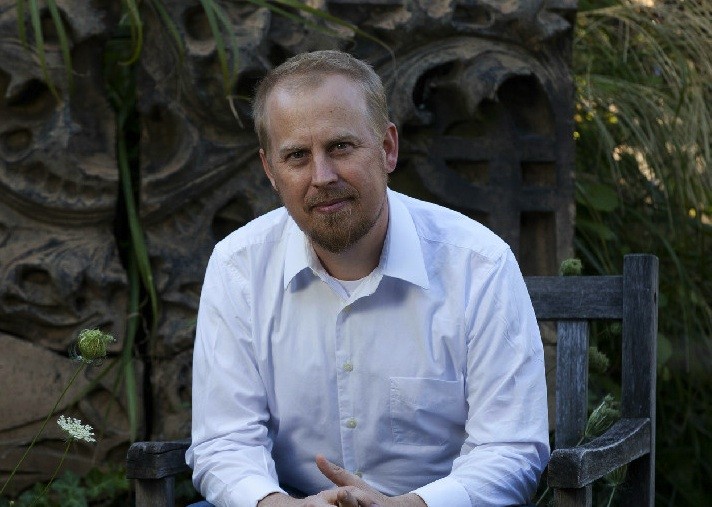Photo Credit: Heather Eidson Photography
When David Stuart Maclean awoke on a train platform in Secunderabad, India, he had no passport, no companion, and no memory. Having been a writer, he had relied on the narratives of his life; in this case, he had none to provide as an answer to the police officer who found him.
“Narrative is a really good companion,” says Maclean. “I later realized how populated—of the narratives of chores, relationships, plans, what have you—my head is on a normal day. Strip all of it away and life feels even lonelier.”
Maclean’s amnesia, caused by the once-weekly anti-malaria drug mefloquine hydrochloride marketed as Lariam, cost him more than his memory while on a 2002 Fulbright. Nevermind the erasure of Maclean’s relationships and past. What followed was a hard and fast lesson involving speculation and trust.
“The man who found me at the train station told me I was a drug addict, so I made up a narrative of what a drug addict does. When my parents found me and came to the asylum to rescue me, I thought they were lying to me that I wasn’t a drug addict,” says Maclean. “I thought only that it was their attempt to make me feel better about my life.”
Maclean will read from The Answer to the Riddle is Me: A Memoir of Amnesia at Gemini Ink’s Spring Kickoff. The content, Maclean says, is just as contradictory as the title. The memoir does not offer the expected triumph of its narrator. Instead, Maclean deals with the inenarrability of his life and the gaps that remain.
“It’s not a standard memoir where at the end the person overcomes an obstacle and feels better,” says Maclean. “Instead, I am not better. It’s not a triumph. I’ve learned to live differently and incorporate this trauma into my life.”
Though others who have suffered the effects of Lariam identify with Maclean’s experiences, he has gained a surprise following. “One of the surprising responses I got was from people with dementia and those who care for them; they find resonance with this book,” says Maclean. “Anyone who has experienced trauma knows it is not so much the attention to the trauma itself, but the daily exercise of living with it. It was frustrating because it was not consistent. It was instead dynamic, weird, and constant.”
Maclean’s next project involves writing about his experiences helping others deal with traumatic events: Sri Lanka’s tsunami and Hurricane Katrina. After spending four months as a volunteer in Sri Lanka, Maclean returned to his then home, Houston. A few years later, he volunteered again for the refugees from New Orleans.
Spring Kickoff Featuring David MacLean
6-9 pm Sat, Feb 1
513 S. Presa
(210) 734-9673


